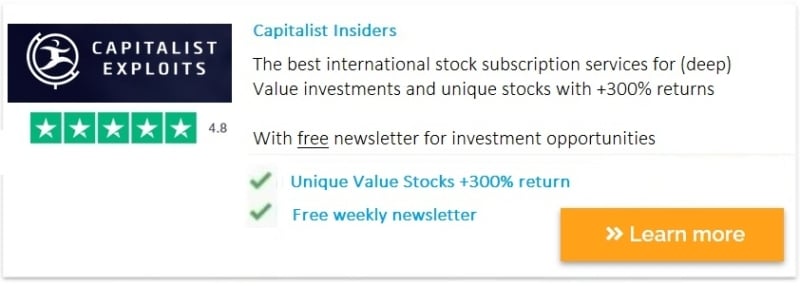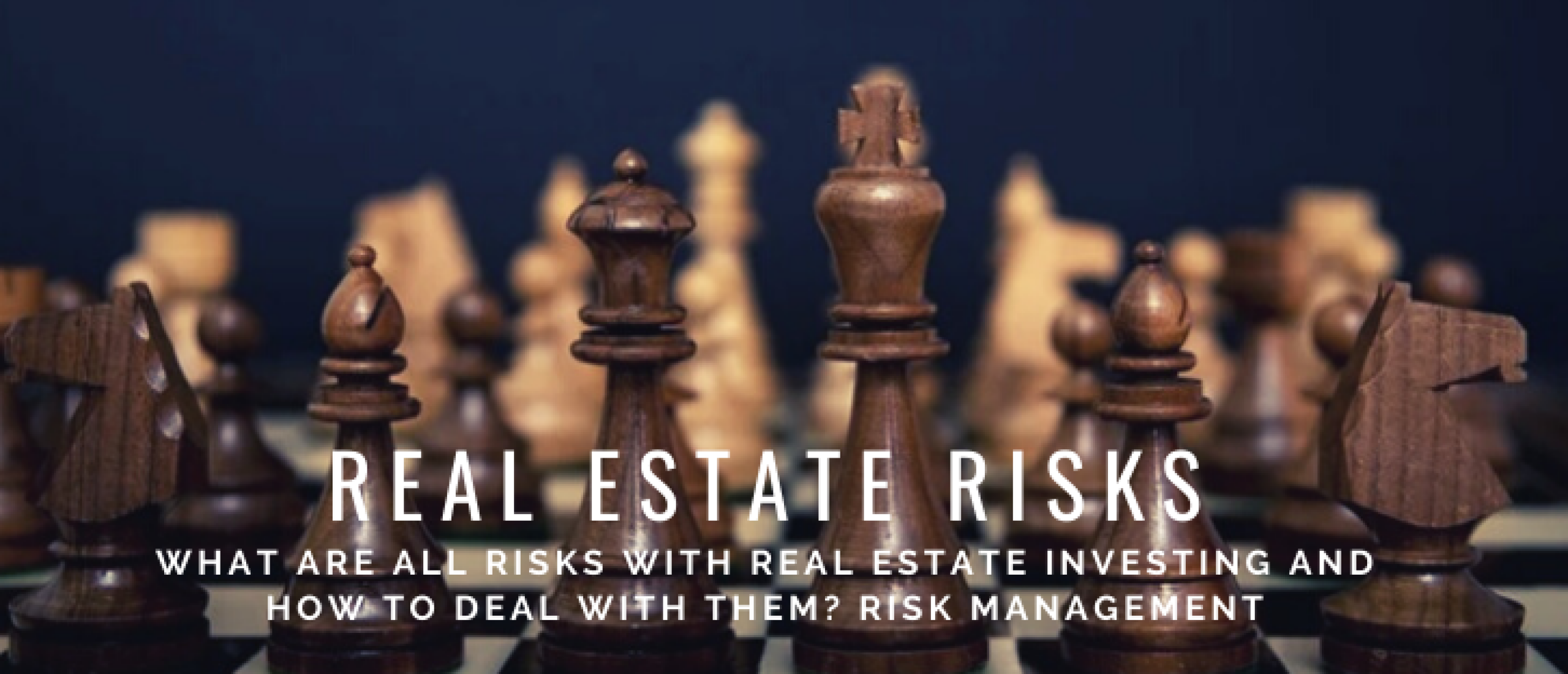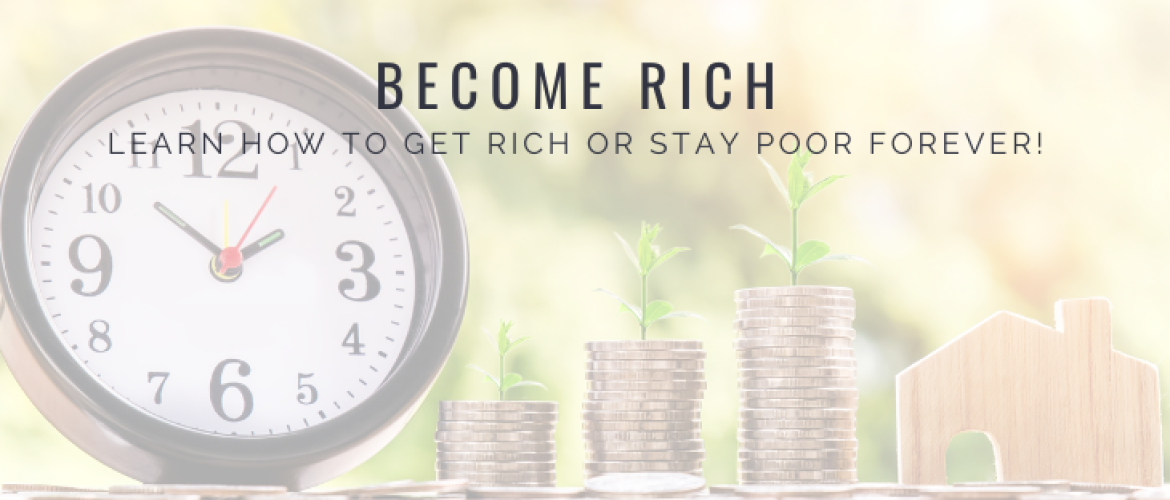Dear novice investor, in this article you will find a basic explanation for beginners for learning real estate investing. This is a fairly complete explanation of the most important aspects to learn real estate investing. From smart tips on costs to increasing returns and cash flow on a real estate property. After this article, you will be aware of the possibilities of becoming financially successful with real estate.
On to sustainable financial success!
Table of Contents
Learning to invest in real estate: options and possibilities

There are several options regarding learning real estate investing. These are the possibilities:
- - Buying real estate: for rent and/or resale
- - Unlisted real estate funds
- - Listed real estate funds called Real Estate Index Trust (REIT)
- - Crowdfunding (or other ways to raise money)
The first three are the best to learn about given the potential returns. However, they are also three separate fields, each with its own advantages and disadvantages.
Unlisted real estate funds are the relatively safest and easiest way to get started with real estate. In a nutshell, the advantage is that it requires no knowledge or time. You can start with a small deposit (from 100 euros). On the other hand, the realized return/dividend is lower.
Then we have listed real estate funds (REIT). They offer more liquidity (quick entry and exit) compared to unlisted real estate funds. Basically, the annual dividend is somewhat similar. The big difference is the stock market listing. A REIT can fall or rise in price value. Advanced (stock) investors prefer REITs because they make an effort to profit from the price appreciation. Learning to invest in real estate with REITs is a skill in itself. Not for beginners.
Finally, we have real estate buying. This is the most interesting option for learning to invest in real estate. Buying gives you ownership. This gives more security and opportunity. In the long run, buying real estate can lead to attractive returns. Also, it gives monthly cash flow if the property is rented out. It is an excellent way to become wealthy but also has real risks.
Below we discuss the basics of learning to buy (and rent) real estate.
Learning to invest in physical real estate: basic explanation for beginners
There are a number of points of great importance for basic knowledge when learning to invest in real estate, namely:
- - Achieving a long-term value stable investment (why)
- - How to buy real estate as a beginner? (how)
- - What do I look for when buying a property (what)
- - Calculating return and cash flow (what)
- - How can I reduce the risk? (what)
We cover all the points in detail below.
A stable investment for the long term

First, we must ask ourselves: why do we want to learn to invest in real estate. After all, we can also invest in shares or ETFs, and possibly achieve even higher returns. Also, this does not give us disadvantages such as mortgage debt. Because this is the case with real estate: you need a lot of money which is usually obtained through a loan.
The big advantage of real estate is that it is a relatively stable long-term investment.
This is why you would want to learn how to invest in real estate. For example, unlike stocks, real estate does not give you a potential price drop. It is true, however, that a property can decrease in value over time, so we should avoid that. To that end, I offer some tips below.
The truth is that any long-term investor can acquire serious wealth thanks to real estate. This can be done in three ways:
- - Value Investing in real estate: buying undervalued properties and reselling them immediately
- - House Flipping: buy properties with potential, renovate them and sell them on
- - Buy & Rent: buy properties and rent them out for a stable cash flow
The first two ways require more advanced skills when learning to invest in real estate. Most private investors choose to rent out properties. This is also my preference.
Buy value stable properties and rent to reliable tenants at an attractive monthly rate. In the long run, this leads to wealth accumulation thanks to (1) cash flow, (2) mortgage payments and (3) potential appreciation.
Even better is to combine the benefits of the three ways above. Below I explain how. Now let's first talk about how to get started as a beginner.
Learning to invest in real estate: how to buy real estate as a beginner?
The biggest challenge as a beginner is starting capital. There are ways to invest in real estate with little money, but this is usually not suitable for physical real estate. To buy a second home, apartment or commercial property, you need partial equity. And this also means you need to qualify for a mortgage loan.
Real estate investors, on the other hand, swear by taking on debt (which in reality creates risk). Invest in real estate with money from financial institutions. This is called leverage, which is basically a type of leverage. Today, the minimum ratio of debt to equity (leverage) is 80/20. This means that we need to put in at least 20% equity to qualify for an 80% mortgage loan. In some cases, there are financial institutions that are willing to pay out more or less.
In addition to the minimum equity deposit, there are additional costs. Think of transfer tax, notary fees and possibly brokerage fees.
Say you want to buy a second home to rent out. The property costs $200,000. In this case you need $40,000 equity supplemented by the mortgage loan and ±$20,000 for other costs. In this case $60,000 is needed to buy the property at all. Any renovation costs will be added.
The return on investment depends on monthly costs (interest on the mortgage loan) and monthly rental income. Potential increases in value also make an impact.
The interest on the mortgage loan is an expense you want to keep as low as possible. Check out examples of specialized real estate financing. You can apply for a mortgage loan from them. Research who offers the lowest interest costs and favorable terms. This will depend in part on your financial situation.
Learning to invest in real estate: what do I pay attention to?

Crucial when learning to invest in real estate is to increase the return at acceptable risk. Returns increase if income increases relative to expenses. It is best to pay attention to both the lowest possible costs and the highest possible income.
It is essential that you first research how much return (and cash flow) you can make on a purchase. Don't buy a property without proper research. Calculate on a worst case basis and allow for setbacks. In practice, there are always setbacks.
In summary, learning to invest in real estate involves controlling for both low costs and high income.
What do I pay attention to in order to keep my costs as low as possible? Here are a few tips:
- - Location is key!
- - Can you buy the property below its market value? (this is your first profit)
- - Choose the most favorable mortgage loan with low-interest rate
- - Are there any liens or other fixed charges?
- - How much (unforeseen and annual) maintenance costs are there?
- - Can you find reliable tenants for this property?
- - Is this the best property you can buy in this location?
- - What future developments do you foresee in this neighborhood
How can I increase my income in real estate? Here are a few tips:
- - Find reliable tenants who are willing to pay the highest possible monthly rent
- - Calculate whether a (small) renovation can lead to (much) higher rental income
- - Minimize vacancy
- - Make good contractual agreements about who pays what
- - Aim for maximum utilization per m2
Learning to invest in real estate: calculating cash flow and returns
To calculate cash flow and return, you need an overview of income and expenses. During preliminary research, you can calculate cash flow to determine if it is a good investment. Another aspect of learning to invest in real estate is emotional discipline. You may love a property. But if the calculation shows that it offers too low a return, then it is a bad investment.
A cash flow analysis consists of:
1. Total gross income (all income - vacancy)
2. Total expenses (from taxes to budget for replacements)
3. Mortgage debts.
Reduce income by all debt for net cash flow.
In the statement above, we buy a property with $60,000 equity. Suppose the monthly rental income is $850. The monthly expenses are $600. In this case, the monthly cash flow is $250 per month, which amounts to $3000 per year.
The gross initial yield, in this case, is 5% (60,000 / 3000). The net return depends on the tax and potential increase or decrease in value in the long run.
In the long run, the return increases. Suppose after 10 years of mortgage repayment you reduce the monthly cost to $450. In this case, the gross yield is 8% on the initial deposit (value appreciation or depreciation not included).
Now suppose you buy the property not for $200,000 but $150,000. This requires an initial deposit of $45,000 based on our assumptions. At a monthly cash flow of $250 per month, the BAR is 6.6%.
Future value growth can be realized by buying into growing locations and/or applying renovations with positive return on investment (ROI).
In summary, this aspect of learning to invest in real estate brings us the wise lesson: buy as low as possible and rent at the highest possible income. In practice, this means conducting good research, patiently waiting for opportunities, and paying close attention to costs.
Learn more about calculating returns with real estate.
Learning to invest in real estate: how to lower risk?

This article concerns a basic explanation for beginners to learn how to invest in real estate. Although the intonation of this article is positive, that does not mean that real estate has real risks. As a long-term investor, I see real estate as a valuable addition. But beware the risk of debt.
Buying real estate means taking on additional mortgage debt. When the sun shines and the tenant pays properly, it is paradise. Extra income without too much effort (after raising the tenant 😉 ). But how do you stand financially at time of vacancy?
An important point of attention when learning to invest in real estate is to take vacancy into account.
You can minimize this risk through contractual agreements. Nevertheless, there can be moments of prolonged vacancy. The financial crisis of 2008 has painfully demonstrated this. If you cannot pay the mortgage when the property is vacant, you have a problem. Either you go into debt, or you hastily sell the property at a lower price than your initial purchase price.
I founded Happy Investors to help people to sustainable (financial) success. This is a different objective than "make money fast" or "make a lot of money". The pitfall with real estate is that you want to go too fast. That you continually buy additional properties at maximum leverage (e.g. 80%). From my perspective, I would approach it differently, namely:
- - Be patient and invest for the long term. This means: first buying one property with 80% leverage but on the condition that your current income can cover the debt in case of vacancy.
- - Maintain a financial buffer
- - Buy a second property with less leverage (i.e. more contribution of equity). Again, on the condition that you can finance the total mortgage debt of buildings 1 and 2 from your current income.
- - From the third property onwards, you need to take a good look at your financial situation and how acceptable the risk (of vacancy) is in relation to the return to be achieved
- - Invest next to real estate also in other assets for diversification
Read more advanced tips on dealing with real estate investing risks here.
Real Estate Course for learning to invest in real estate
In this article, we have discussed the basics of learning how to invest in real estate. Think of it as a beginner's guide with the most important points to consider for a good start. Of course, reading comprehension is not enough to learn real estate investing successfully. More important is learning by doing. Gaining experience. This is the best learning experience. Sometimes also the most painful. You can read up even more and start yourself, or you can choose to learn from advanced real estate investors. You can do this by taking a real estate course with guidance. An even better option is to ask an acquaintance to be your mentor. Someone who has made her mark in real estate, and can teach you exactly how to invest in real estate.
As for the real estate course. This costs an initial investment. It is up to you whether you see the value in this. In principle, you can find almost all information on the Internet. But the practical and concrete tips of how to do something exactly you will not usually find there. If you choose a real estate course, choose a party that offers (personal) guidance. This will help you the most.

![Learning Real Estate Investing: Free Explanation Beginners [2022].](https://media-01.imu.nl/storage/thehappyinvestors.com/4861/learn-real-estate-investing-2560x1100.png)


![Airbnb Real Estate Investing: Beginners Guide Strategy [2022]](https://media-01.imu.nl/storage/thehappyinvestors.com/4861/airbnb-real-estate-investing-2560x1100.png)

![How to Start With Real Estate Investing? [2022] Beginners Guide](https://media-01.imu.nl/storage/thehappyinvestors.com/4861/how-to-start-with-real-estate-investing-2560x1100.png)

